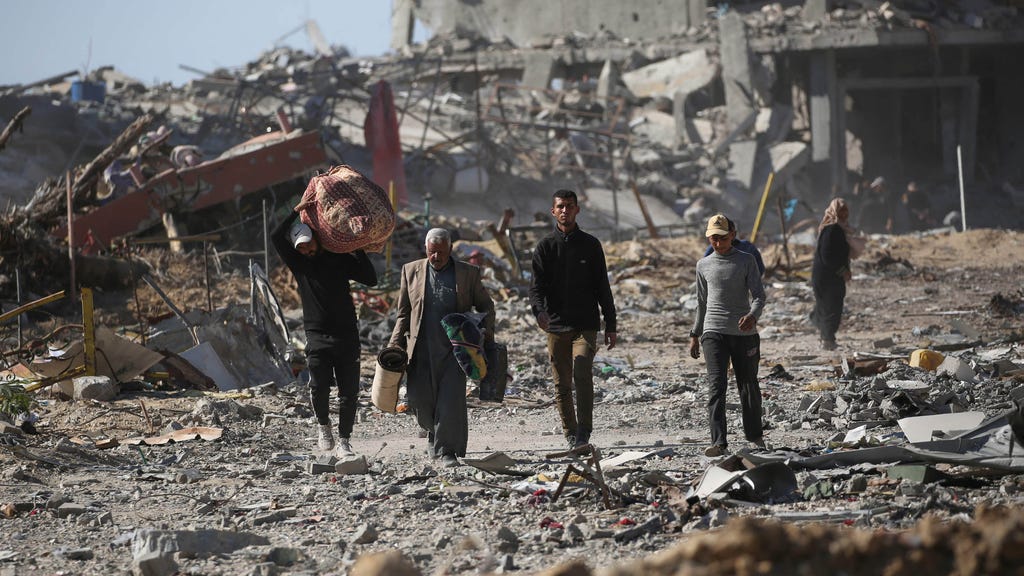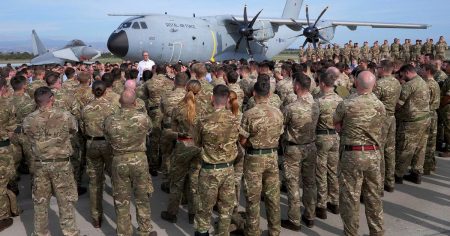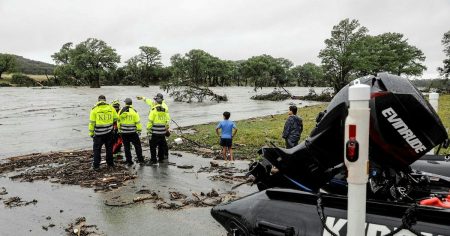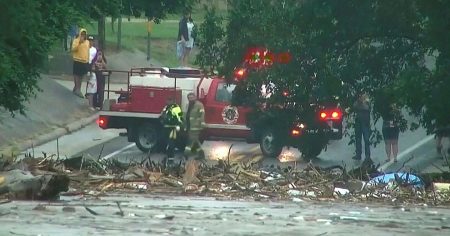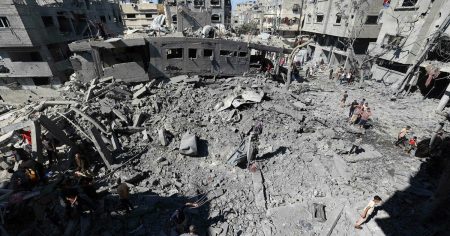The Gaza Strip faces a monumental reconstruction challenge following the recent conflict. The devastation, particularly severe in the northern Gaza City and southern Rafah areas, has left most homes either completely destroyed or uninhabitable. The United Nations Relief and Works Agency for Palestine Refugees in the Near East (UNRWA) estimates a daunting timeline for recovery, projecting that it could take up to two decades to clear the rubble, rebuild essential infrastructure, and restore a semblance of normalcy to the lives of Gaza’s residents. The scale of destruction is unprecedented, underscoring the profound humanitarian crisis gripping the region.
The magnitude of the destruction is vividly depicted in aerial images shared by UNRWA, showing a landscape scarred by bombed-out buildings and widespread debris. Hospitals, schools, and even UNRWA facilities have been targeted, leaving no place untouched by the conflict’s impact. The widespread damage underscores the vulnerability of civilian populations during wartime and the long-term consequences of such devastation on the social fabric and development of a community. The sheer volume of rubble alone presents a herculean task, requiring years of sustained effort and substantial resources to clear.
As residents of Rafah begin to return after months of displacement and Israeli occupation, they are confronted with the stark reality of their devastated city. The returning residents of Rafah, who have endured repeated displacements across Gaza, now face the immense challenge of rebuilding their lives amid widespread destruction. The once-familiar landscape of their homes, essential services, and community spaces now lies in ruins, adding another layer of trauma to their already arduous experiences. This return, while offering a glimmer of hope, highlights the urgent need for humanitarian assistance to provide immediate relief and support long-term recovery efforts.
The return to northern Gaza is delayed until Sunday, contingent upon the release of hostages and Israel’s withdrawal from a buffer zone. The conditional return underscores the volatile and complex security situation that persists even after the ceasefire. Families, like that of photojournalist Hussein Abdul Jawad, eagerly anticipate returning to their homes, despite the daunting prospect of finding them uninhabitable. The delay and the conditions attached to the return further exacerbate the uncertainty and anxiety faced by displaced families longing to rebuild their lives.
Hussein Abdul Jawad, his family, and his mother, who were displaced from Gaza City at the outset of the war, are among those waiting to return. Having sought refuge in various locations, they eventually settled in Khan Yunis, living in tents. While they celebrate the prospect of returning home, they face the harsh reality that their house is uninhabitable due to the extensive damage. The prospect of transitioning from one temporary shelter to another underlines the persistent challenges faced by displaced families. The anticipated difficulties in transporting tents and belongings, coupled with the financial burden, amplify the precariousness of their situation.
The dire humanitarian situation in Gaza necessitates urgent and extensive aid. Hundreds of thousands of Palestinians are in desperate need of emergency assistance, including shelter, food, water, and medical supplies. UNRWA’s appeal underscores the critical role of international humanitarian organizations in providing immediate relief and supporting long-term recovery efforts. The scale of the crisis requires a concerted global response to address the immediate needs of the affected population and to pave the way for the long and arduous process of rebuilding Gaza. The coming years will be crucial in providing the necessary support to enable the people of Gaza to rebuild their lives, their homes, and their future.





